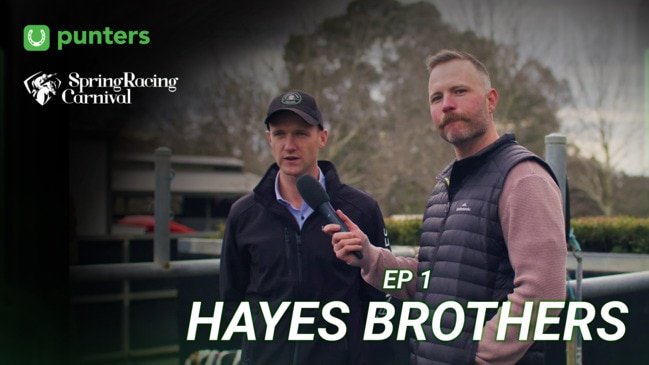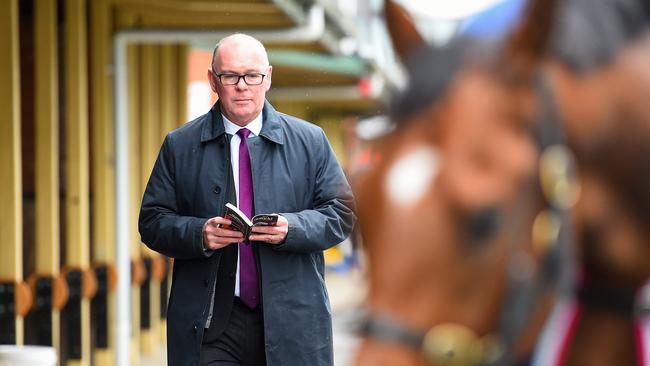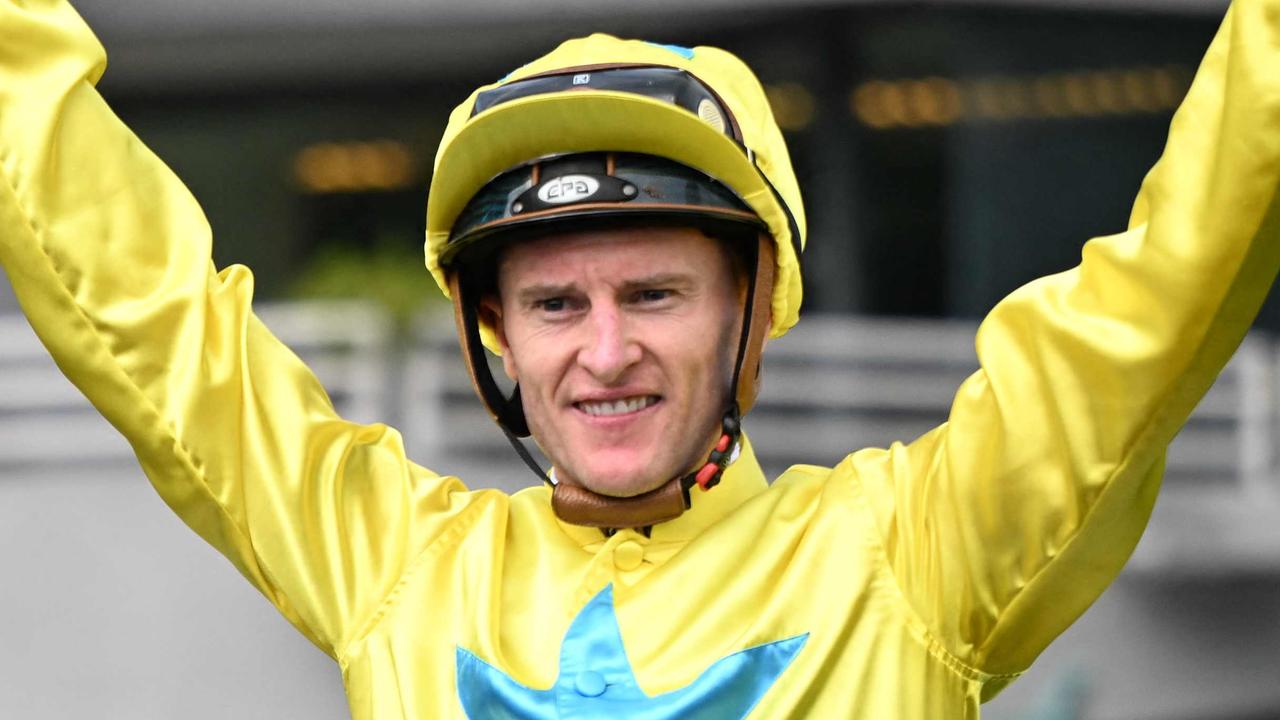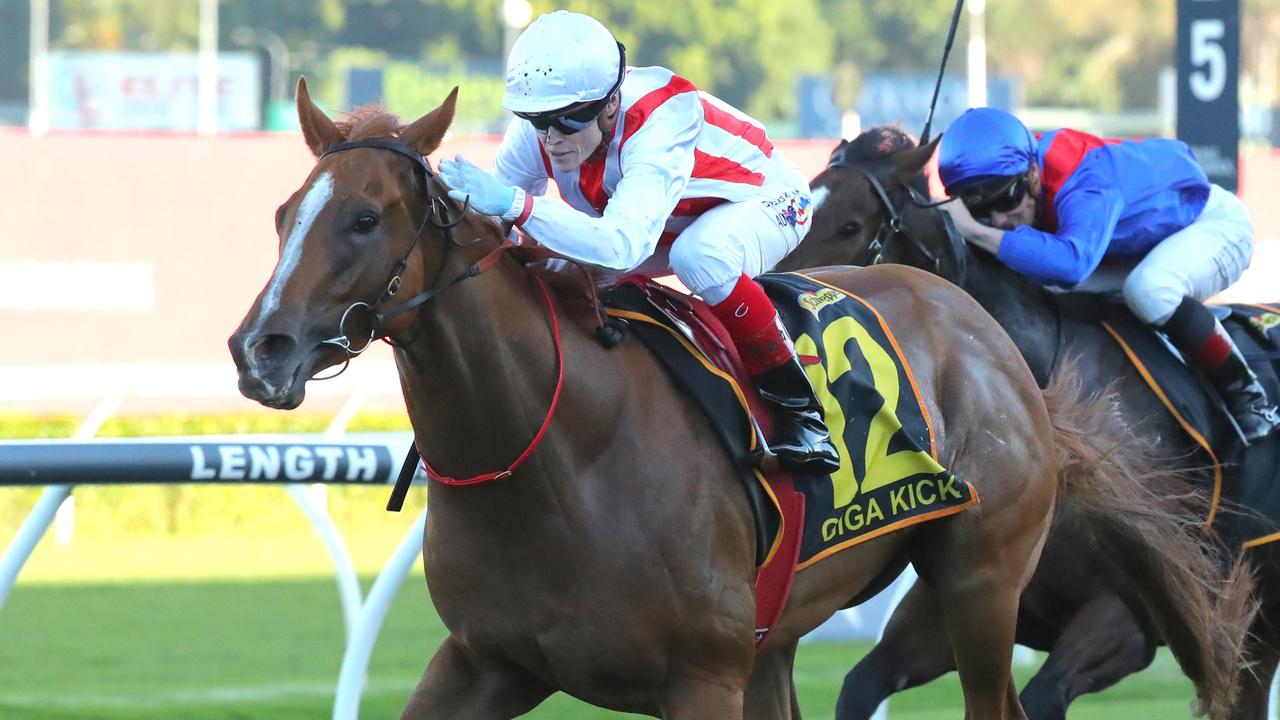Welfare biggest challenge for world racing, says Racing Victoria Integrity boss
Racing Victoria’s integrity boss says the spotlight on horse welfare has never been greater and racing has to get better shifting the debate away from “radical hyperbole”.

Horse Racing
Don't miss out on the headlines from Horse Racing. Followed categories will be added to My News.
Racing Victoria integrity boss Jamie Stier says horse welfare is the single biggest global challenge the industry has faced.
Stier, the International Federation of Horseracing Authorities horse welfare committee chair, told the 40th Asian Racing Conference in Sapporo, deaths of horses in racing and training has a global reach.
“For a growing number of people the use of any animal in the sport is no longer acceptable,” Stier said.
“This means the spotlight will increasingly shine on what our industry is doing to protect our horses.
“That spotlight is never greater than when a horse breaks down, it collapses in the homes straight of the Group 1 race. It doesn’t matter whether it’s at Flemington, Sha Tin, Ascot, or Churchill Downs.
“These events are highly visible with our coverage on TV and online, are easily distributed via social media, and in many cases become the topics of conversations in mainstream outlets.
“They are also extremely upsetting for viewers, racegoers, industry participants alike and serve as cannon fodder for our sport’s detractors.”
• ‘I didn’t want a street fight’: Why Kanga courted controversy
Stier, one of three speakers on the enhancing equine safety and industry sustainability panel, said continued and collaborative global investment in science and research was critical, along with greater communication.
“Why don’t we tend to see, at least in my part of the world, is researchers coming out publicly backing racing, backed by significant bodies of scientific work?” Stier said.
“Now, don’t get me wrong, we shouldn’t be asking researchers to be the cheerleaders of our sport.
“The sway held in the court of public opinion of regulators delivering messages on injuries and fatalities in times of crisis does not match that of an easily understandable message delivered by an independent scientist.
“So what we would be promoting in times of crisis is an understandable and robust presentation of the data that demonstrates statistically low rates together with the ongoing studies being pursued to further reduce these events occurring.
“I think that would go a long way to shifting the debate away from the radical hyperbole to a more sustainable impact-based discussion.”

A world renowned expert in corporate sustainability, Bob Langert, opened the discussion on Friday.
Langert, who led McDonald’s social responsibility and sustainability arm for more than 20 years before retiring in 2015, challenged the global racing industry to be open, collaborate and act.
Langert guided the fast food behemoth past a range of issues, environmental and health criticisms.
He said an openness and a willingness to work on issues, food packaging, livestock production, and obesity, helped McDonald’s cope with attacks on its brand.
“If you don’t want to be open, what does that mean to the consumer?” Langert said.
“It means you’re hiding something, I challenge you how can you be more open?
“You got to be a little bit uncomfortable, you got to be open and need to collaborate with partners that make sense.”
Langert’s success was built around bringing respected and independent third parties, advocates and activists, into the McDonald’s tent, “let them see anything and review everything”.
“I really do believe if you’re not comfortable exposing your business to the front page of the New York Times then you should change something,” Langert said.
“The key to getting out of the target zone is third parties back you up, and a lot of companies aren’t willing to do that.
“Your industry has a great story, great animals, great passion, I don’t see why you can’t win this battle.”
Originally published as Welfare biggest challenge for world racing, says Racing Victoria Integrity boss





